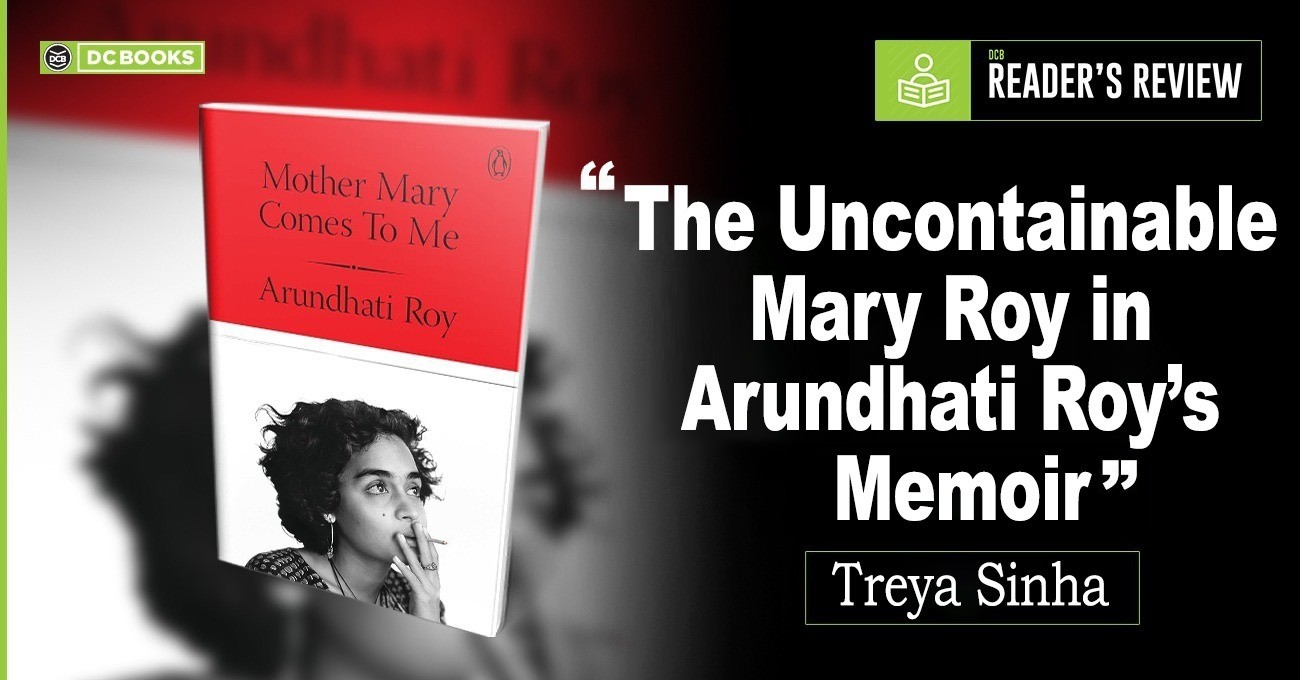Mother Mary Comes To Me – The Uncontainable Mary Roy in Arundhati Roy’s Memoir
Mother Mary Comes To Me – Book Review by Treya Sinha
There is something deeply disquieting about Arundhati Roy’s latest book, her first memoir, written in the shadow of her mother’s death. And yet you don’t have to be a reader or writer to fall in love with it.

Mother Mary Comes to Me is bold, as any memoir must be, but also paradoxical. Roy manages to be utterly confessional and yet curiously elusive at the same time. Her prose embraces the “David Copperfield crap” that Holden Caulfield once railed against in The Catcher in the Rye — the everyday humiliations, triumphs, and awkward textures of childhood. But Roy, unlike Caulfield’s caricature of phoniness, achieves an authenticity that is vulnerable, unsparing, and never sentimental. You will want to be her best friend; you will want to know her better.
This is not simply Arundhati’s story. It is the story of her mother, Mary Roy — formidable, contradictory, impossible to contain. To a casual internet search, she appears in history as an “educator.” Arundhati paints her instead as a woman who refused the prescribed life of a Syrian Christian daughter, married for love, walked away from an alcoholic husband, survived debilitating asthma, and, with sheer willpower founded a school in Kerala that grew into an institution with a waiting list at birth.
Mary Roy was also the petitioner in a landmark Supreme Court case that struck down the Travancore Christian Succession Act of 1916, securing equal inheritance rights for Syrian Christian women in 1986. It was one of the most significant feminist victories in Indian legal history — and one of Mary Roy’s proudest battles.
By Treya Sinha
